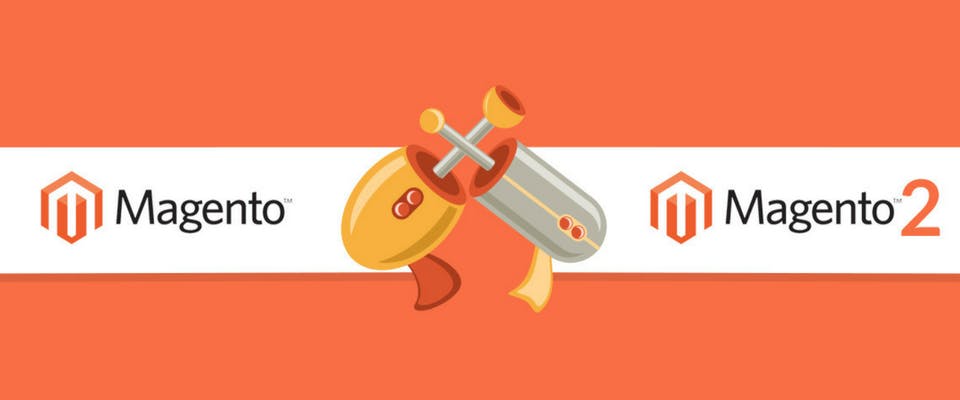Magento 1 was originally developed as a flexible ecommerce solution. However, the platform lacked some vital features that were found on many rival ecommerce platforms. Therefore, many merchants were complaining about the slow performance of their Magento 1 stores leading to lost customers and decreased revenue.

So how do you know when it’s time to upgrade and what are the key points in a Magento 1 vs Magento 2 comparison?
To help you make the best decision, this article will look at the key differences between Magento 1 vs 2.
Architecture. The Magento development team has modified the stack by adding different new technologies – Apache, NGINX, Varnish, Composer, Symfony, Redis, and more. The architecture now supports the PHP7 version, which essentially means even better chances for optimization and customization.
Performance. Magento 2 is faster all around: on the product, category, and home pages. Many new technologies were added to Magento 2 that helped to optimize pages for fast delivery, reduce the server response time for site activities, and make backend operations more effective. The average loading time is now below two seconds (50% faster than Magento 1). Now Magento 2 can operate around two million more page views and process up to 39% more orders hourly compared to Magento 1. Add to cart server response is now 66% faster, and an end-to-end checkout is also 51% faster.
Dashboard. An advanced dashboard is what Magento 1 was missing. Magento 2 admin dashboard displays last, new, and average orders; lifetime retail sales, top search keywords; income tax, bestsellers; the number of products; and amount of shipping that helps to determine the progress of your ecommerce business. In addition, with Magento 2 you can create configurable products and customize data grids.
Security. Maintaining security is crucial when operating an ecommerce website. Magento 2 supports advanced built-in security options. One of them is SHA-256 (Secure Hash Algorithm 256) for passwords, which makes it less possible for a dictionary attack to succeed. Magento 2 also comes with the fraud protection system Signifyd. Signifyd is embedded in the latest release of Magento 2, allowing the platform to determine and reject orders that seem to be scams and deliver 100% chargeback protection.
Extensions. With Magento 2, you can integrate and make modifications to new extensions less expensively and with no hassle. The process of installing extensions and updating features became simpler because of the new technologies (HTML5, CSS3, Require.js) integrated into Magento 2.
Functionality. One of the major Magento 1 vs 2 functionality differences is the introduction of Ajax Add-To-Cart to Magento 2. Checkout functionality has also been simplified and now it’s easy for customers to navigate. Magento 2 automatically recognizes inputted card types of registered customers. Magento 2 takes this further and also provides advanced reporting and marketing automation. Last but not least, one of the most important changes in Magento 2 is the dependency injection.
Support. The end of Magento 1 support is coming soon, exactly at the end of June 2020. At the same time, Magento 2 has integrated new features like Page Builder, PWA (Progressive Web Applications) and is expected to realize even more functionality to deliver robust ecommerce solutions with better speed, security, and performance.
SEO. When Magento 1 was launched in 2005, it lacked significant functionalities for SEO. Magento 2 has introduced many enhancements in search engine optimization. For instance, Schema is aimed to boost the search engine rankings of your store.
Cost. This could be the only aspect where Magento 1 wins the battle, as the Magento 1 license is cheaper than Magento 2. Community Editions: Magento 1 and Magento 2 are free of charge. Enterprise Editions: Magento 1 EE license cost (starts at): $18,000 per year. Magento 2 EE license cost (starts at): $22,000 per year.
In Magento 1 vs 2 comparisons, Magento 2 wins the battle hands down as it is the more robust and efficient solution to base a retail business on.